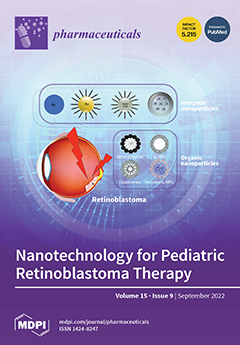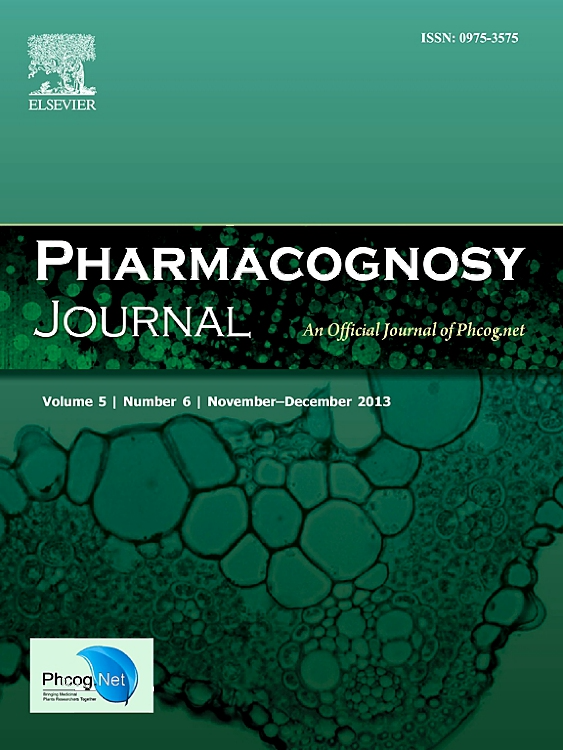Lemongrass
How to submit an article:
- Registered users can submit any published journal article that has a unique DOI (Digital Object Identifier) name or link to Research Hub.
- For example, you can paste the full DOI link:
https://doi.org/10.1109/5.771073or just the DOI name:10.1109/5.771073into the field above and click submit. - The person who is first to submit a valid article to Research Hub will forever be credited for it, and every article submission earns you +6 Research Points.
Published research studies are articles that present the findings of original research that has undergone a peer-review process and has been made publicly available in scholarly journals, books or other media.

Exploring the Clinical Applications of Lemongrass Essential Oil: A Scoping Review
2024 Jan 25 Pharmaceuticals Kusuma IY, Perdana MI, Vágvölgyi C, Csupor D, Takó M
Review Article Lemongrass Oil Dandruff Gingivitis Periodontitis LemongrassLemongrass essential oil can effectively treat periodontitis, gingivitis, oral malodour, skin aging, and dandruff, and it is comparable to certain established treatments.

Safety Assessment of Supplementation with Cymbopogon citratus Stapf. (Lemongrass) Extract in Patients with Chronic Kidney Disease Stage 3: A Preliminary 90-Days Prospective Study
2024 Jan 01 Pharmacognosy Journal Wongmanit P, Tungsukruthai P, Phetkate P, Rungprai D, Tungsukruthai S, Supasyndh O, et al.
The study concluded that C. citratus supplementation is safe for CKD stage 3 patients and may help delay the progression of the disease without causing notable side effects.
Experimental Study Clinical Study Lemongrass Chronic Kidney Disease
Lemongrass Extract Possesses Potent Anticancer Activity Against Human Colon Cancers, Inhibits Tumorigenesis, Enhances Efficacy of FOLFOX, and Reduces Its Adverse Effects
2019 Jan Integrative Cancer Therapies Ruvinov I, Nguyen C, Scaria B, Vegh C, Zaitoon O, Baskaran K, et al.
Experimental Study Obesity Chemotherapy Lemongrass Anticancer Bowel CancerLemongrass extract has potential as a supplement to chemotherapy, reducing colon cancer growth, enhancing treatment effectiveness, and mitigating side effects like weight loss.
Research insights are moderated by the Research Hub team and offer an at-a-glance overview of interesting research findings.

2024 Pharmaceuticals
Lemongrass essential oil can effectively treat periodontitis, gingivitis, oral malodour, skin aging, and dandruff, and it is comparable to certain established treatments.
Review Article Dandruff Gingivitis Lemongrass Oil Periodontitis
Exploring the Clinical Applications of Lemongrass Essential Oil: A Scoping Review
Kusuma IY, Perdana MI, Vágvölgyi C, Csupor D, Takó M

2019 Integrative Cancer Therapies
Lemongrass extract has potential as a supplement to chemotherapy, reducing colon cancer growth, enhancing treatment effectiveness, and mitigating side effects like weight loss.
Experimental Study Anticancer Bowel Cancer Chemotherapy Obesity
Lemongrass Extract Possesses Potent Anticancer Activity Against Human Colon Cancers, Inhibits Tumorigenesis, Enhances Efficacy of FOLFOX, and Reduces Its Adverse Effects
Ruvinov I, Nguyen C, Scaria B, Vegh C, Zaitoon O, Baskaran K, et al.
Review Articles
Review articles summarise and critically evaluate the current state of research on a specific topic or field by synthesising multiple primary research studies.
Clinical Trials
Clinical trials are research studies that involve people and are conducted to evaluate the safety and efficacy of new treatments or interventions, such as drugs, medical devices, or behavioural therapies.
Study Protocols
Published study protocols are detailed plans that outline the objectives, methodology, statistical analyses, and organisation of a research study that have been made publicly available for others to review and use as a reference.
Presentation Slides

Review Article
Lemongrass essential oil can effectively treat periodontitis, gingivitis, oral malodour, skin aging, and dandruff, and it is comparable to certain established treatments.
Kusuma IY, Perdana MI, Vágvölgyi C, Csupor D, Takó M

Experimental Study
Lemongrass extract has potential as a supplement to chemotherapy, reducing colon cancer growth, enhancing treatment effectiveness, and mitigating side effects like weight loss.
Ruvinov I, Nguyen C, Scaria B, Vegh C, Zaitoon O, Baskaran K, Mehaidli A, Nunes M, Pandey S
Executive Summary
Write an executive summary in the form of a blog article on the topic of "Research into Chinese medicine treatment for Lemongrass" summarising the research below and using language that can be easily understood by patients and avoiding medical jargon using a professional and caring tone of voice.
Write an executive summary in the form of a blog article on the topic of "Researched Chinese medicine treatments for Lemongrass" summarising the research below in an objective and easy to understand way, and using language that can be easily understood by patients. Group the article into Chinese medicine treatments first, followed by nutrition and other treatments. Avoid using medical jargon and use a professional and caring tone of voice.
Write me a concise but easy to understand executive summary on the topic of "Chinese medicine treatments for Lemongrass" based on the following research that I will give you. Your summary should be 2 paragraphs long in Australian English spelling and include references to the studies.
A Review Article published in 2024 in the journal Pharmaceuticals found that Lemongrass essential oil can effectively treat periodontitis, gingivitis, oral malodour, skin aging, and dandruff, and it is comparable to certain established treatments. The methodology used in the research followed a scoping review design, which was aimed at identifying, summarizing, and synthesizing existing literature related to the clinical applications of lemongrass essential oil. Three databases, namely PubMed, Web of Science, and Scopus, were utilized, following the PRISMA-ScR guidelines, to find articles published within approximately a 10-year timeframe. The results of the review suggest that patients have received noticeable therapeutic benefits from treatments that were primarily administered oromucosally and topically. It can be deduced that the efficacy of lemongrass essential oil in treating periodontitis, gingivitis, and oral malodour is similar to that of chlorhexidine and doxycycline. Moreover, the oil has demonstrated potential in treating skin conditions such as pityriasis versicolor, preventing skin aging, and having anti-dandruff effects. The diverse range of applications of the oil and its efficacy when compared to established treatments highlight its potential for clinical applications.
A Experimental Study published in 2019 in the journal Integrative Cancer Therapies found that Lemongrass extract has potential as a supplement to chemotherapy, reducing colon cancer growth, enhancing treatment effectiveness, and mitigating side effects like weight loss. The study utilized both human colorectal cancer models and APC transgenic mice to assess the effectiveness and potential preventive properties of lemongrass extract. The researchers initially tested the impact of the extract in vitro, observing its influence on cancer cells over time and in relation to does. Moreover, they analyzed the extract's effects when orally administered to mice with colon cancer xenografts. This was done to understand its effectiveness in handling colon cancer and potential negative impacts on healthy cells. The latter part of the study focused on the interaction of lemongrass extract with two common chemotherapy treatments used for colon cancer, FOLFOX and Taxol. This was done not only to understand how the extract might influence the chemotherapy's results but also to assess if it could ameliorate any side effects of these potent treatments. It was found that ethanolic lemongrass extract demonstrated a potent anticancer effect by inducing apoptosis (cell death) in colon cancer cells without negatively impacting the healthy cells. This effect was noticed to be both time and dose-dependent. Moreover, when fed to mice with colon cancer xenografts, the extract not only inhibited cancer growth but was well tolerated by the animals. Significant implications were evidenced when the extract was given alongside FOLFOX. Not only did it enhance the effectiveness of this chemotherapy treatment, but it also actively countered weight loss, one of the common side effects. Finally, the lemongrass extract effectively reduced intestinal tumors in APC transgenic mice, suggesting its potential role for preventative measures against colon cancer. Based on these results, the researchers concluded that lemongrass extract may be a promising supplemental treatment for colorectal cancer in the future.
Moderation Tools
Topic
Sign In
Users not signed in are limited to viewing the 5 most recent items of content.